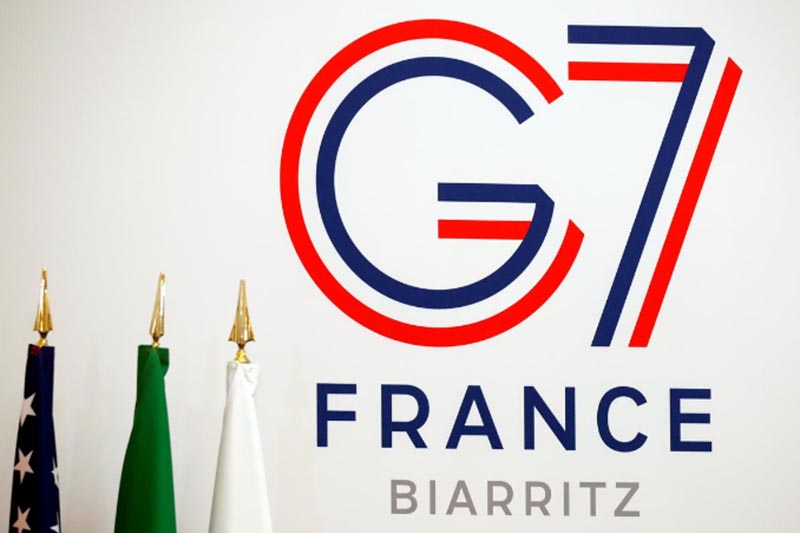French yellow vests join global activists at G7 counter-summit
- Anti-globalisation activists gather ahead of the G7 summit
- Police fear repeat of yellow vest violence in Paris
- Basque regionalists, yellow vests join protest
HENDAYE, FRANCE/IRUN, SPAIN: Anti-globalisation and climate activists have teamed up with yellow vest protesters and Basque nationalists ahead of a G7 meeting in France this weekend to confront a rich-poor divide they say is growing due to the "cynicism" of world leaders.
At a "counter-G7" summit in the twin cities of Hendaye, France and Irun, Spain, on the French-Spanish border 30 km (18 miles) south of G7 venue Biarritz, 50 NGOs are meeting to protest at economic and climate policies pursued by the world's leading industrial countries and to promote alternatives.
"The cynicism of the G7 meeting is that it has made inequality the central theme of the event, but it is these rich countries' very policies that create and strengthen inequality," said Sebastien Bailleul, a spokesman for "Alternatives G7".
He said he saw no contradiction in international anti-globalisation activists working with France's "yellow vest" movement, which grew from a protest against green taxes on fuel.
The "yellow vest" movement included figures with far-right sympathies and has been marked by rioting and looting in a series of often violent weekly protests end 2018-early 2019.
Bailleul added the Basque independence movement in Spain has abandoned violence. In 2011, Basque militant separatist group ETA announced an indefinite halt to its campaign of armed action which killed more than 850 people in Spain over half a century.
"The organisation of this counter-summit is with those Basque movements that are rather leftist, and who have the same worldview as the anti-globalisation movement," he said.
He added that the counter-G7 summit would have been a failure if France's most important social movement, the yellow vests, had not been represented there.
CONVERGENCE OF PROTESTS
Friends of the Earth spokeswoman Malika Peyraut also said the presence of the yellow vests at the G7 was essential.
"We are buildings bridges with the yellow vests, which is a multifaceted movement. Part of it understands very well that social and climate issues are closely linked," she said.
Yellow vest protesters have a stand at the Ficoba conference centre in Irun, across the bridge to Hendaye, and people wearing the movement's trademark yellow high-visibility vests spoke at several pre-summit events at the centre.
"There is a convergence of battles," yellow vest activist Genevieve Legay told Reuters.
In March, veteran activist Legay, then 73, ended up in hospital after she was knocked over during a police charge on a yellow vest march in Nice.
Speaking on stage at the NGO meeting area in Irun, Aurelie Trouve, spokeswoman for the "Alternatives G7" collective of French NGOs, said the groups bring together climate activists, yellow vests, feminists and other activists.
"At this counter-summit, we want to unite all the movements that fight policies imposed by heads of state, policies that benefit the wealthiest and multinational companies and that are discriminatory and authoritarian," she said.
Counter-summit organisers plan peaceful marches in Hendaye and Irun on Saturday, but yellow vest organisers have also called for their 41st Saturday protest to be held in Biarritz, which is off-limits to protesters.
On Sunday, activists plan "disobedience" actions and self-described radical environmentalist group "Action non-violente COP21" will defy a ban on demonstrations in Bayonne, 8 km (5 miles) east of Biarritz, with a march carrying official portraits of French President Emmanuel Macron which it says have been taken from town halls around the country.
This weekend thousands of anti-riot police will block access to Biarritz as authorities fear a repeat of the looting, rioting and car-torching in Paris mid-December last year when the French capital saw the worst urban violence since the May 1968 student protests.
A previous G8 summit in Deauville, France was noted for its absence of demonstrations as protesters there were also kept at a location 40 km (25 miles) away.






